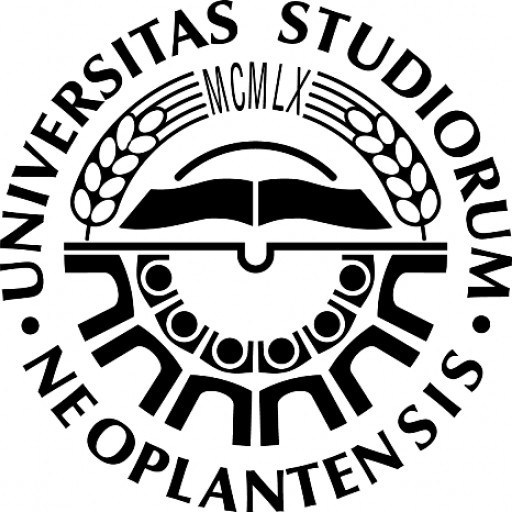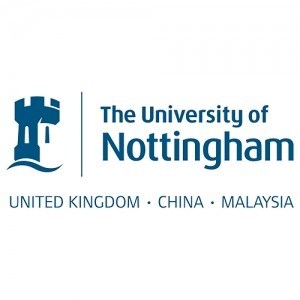Photos of university / #ustmikesstudents
Program Description:
The Bachelor of Science in Aerospace Science and Engineering at the University of St. Michael's College offers students a comprehensive education in the principles and practices of aerospace technology, combining rigorous scientific coursework with practical engineering skills. This interdisciplinary program immerses students in the study of aerodynamics, propulsion systems, aircraft and spacecraft design, flight mechanics, and space environment interactions. Through a blend of lectures, laboratory work, and hands-on projects, students develop a deep understanding of the physical principles governing flight and space exploration, as well as the technological innovations driving advances in this field. The curriculum emphasizes not only technical proficiency but also problem-solving, critical thinking, and teamwork skills essential for successful careers in aerospace industries, research, and academia.
Students will explore core topics such as fluid mechanics, materials science, control systems, and computer-aided design, preparing them to analyze and solve complex engineering challenges. The program underscores the importance of safety protocols, environmental considerations, and regulatory compliance within aerospace operations. Additionally, students have opportunities for experiential learning through internships, research projects, and collaborations with industry partners, which facilitate their transition into the professional world. The degree also encourages interdisciplinary integration, allowing students to engage with related fields such as robotics, computer science, and environmental science to broaden their skill set.
Graduates of the Aerospace Science and Engineering program are well-equipped to pursue careers in aircraft and spacecraft manufacturing, aviation services, aerospace research and development, or continue their studies through graduate programs in aerospace engineering, mechanical engineering, or related disciplines. The University of St. Michael’s College’s commitment to academic excellence and innovation ensures that learners are prepared to contribute meaningfully to advancements in aerospace technology, exploration, and safety. Our program fosters a global perspective, ethical understanding, and a passion for innovation, making it an ideal choice for aspiring aerospace engineers dedicated to advancing flight and space exploration capabilities worldwide.
The Bachelor of Science in Aerospace Science and Engineering at the University of St. Michael's College offers a comprehensive and rigorous curriculum designed to prepare students for a successful career in the aerospace industry. The program combines foundational knowledge in physics, mathematics, and engineering principles with specialized coursework in aeronautics, astronautics, and aerospace system design. Students will explore the fundamentals of aerodynamics, propulsion systems, control systems, materials science, and structural analysis, gaining a solid understanding of both theoretical concepts and practical applications.
Throughout the program, students engage in hands-on learning experiences, including laboratory work, simulation exercises, and project-based coursework that develop problem-solving skills and technical proficiency. The curriculum also emphasizes the importance of theoretical modeling, experimental techniques, and the use of advanced software tools used in aerospace engineering. Students will have opportunities to participate in research projects, internships, and collaborations with industry partners, enhancing their practical experience and preparing them for careers in aircraft and spacecraft design, testing, manufacturing, and maintenance.
The program aims to foster innovation, critical thinking, and leadership qualities, encouraging students to contribute to advancements in aerospace technology. Ethical considerations, sustainability, and safety are integrated into the coursework to ensure graduates are responsible professionals. Upon completion of the program, students will be equipped with the technical expertise and analytical skills needed to excel in aerospace engineering roles or pursue graduate studies in related fields. Graduates will be prepared to work in a dynamic and rapidly evolving sector, contributing to the development of new aircraft, spacecraft, and related systems that push the boundaries of engineering and exploration.
The Bachelor of Science in Aerospace Science and Engineering at the University of St. Michael's College is designed to provide students with a comprehensive foundation in the principles of aerospace engineering, including aerodynamics, propulsion, structures, materials, and flight mechanics. To complete this degree programme, students are required to fulfill a combination of general education courses, core engineering courses, and specialized aerospace subjects, alongside practical laboratory work and project-based assignments. The curriculum emphasizes both theoretical understanding and applied skills, preparing graduates for careers in aircraft and spacecraft design, testing, manufacturing, and research.
Students must complete a minimum of 120 credit hours over the course of their studies, which typically spans four years of full-time study. Entrance requirements usually include a strong secondary school academic record in mathematics, physics, and chemistry, along with proficiency in English. During the programme, students are encouraged to participate in internships and cooperative education placements to gain real-world experience and industry insight. The laboratory components are essential, providing hands-on experience with aerospace systems, computational simulations, and engineering tools.
To graduate, students are generally expected to maintain a minimum GPA, complete a capstone design project in their final year, and demonstrate proficiency in technical communication and problem-solving. The programme also includes opportunities for research projects and participation in aerospace competitions, fostering innovation and teamwork skills. Upon completion of the programme, graduates receive a Bachelor of Science degree in Aerospace Science and Engineering, qualifying them for employment in aerospace industries, government agencies, or for further studies at the graduate level. Additional certification or licensing may be required for certain advanced engineering roles, which students are advised to pursue in accordance with industry standards and regional regulations.
Tuition fees for the Aerospace Science and Engineering program at the University of St. Michael's College are structured to accommodate a diverse student body, including domestic and international students. Undergraduate domestic students typically pay a tuition fee of approximately CAD 8,500 per year, while international students are subject to higher fees, estimated at around CAD 24,000 per year. Additional costs may include student service fees, laboratory and equipment fees, and health insurance. Financial aid options are available for eligible students, including scholarships, bursaries, and grants administered by the university. Specific scholarships tailored for engineering students or those pursuing aerospace studies may provide significant financial support.
Students are encouraged to explore external funding opportunities such as government grants, external scholarships, and private sponsorships. The university's Financial Aid Office provides comprehensive guidance on application procedures and eligibility criteria. It is advisable for prospective students to prepare a detailed financial plan considering tuition, living expenses, textbooks, insurance, and personal costs. International students should also account for visa-related expenses and potential travel costs.
Work-study programs may be available to enrolled students, allowing them to gain practical experience and offset expenses through part-time employment on or near campus. Payment plans are often offered to help manage tuition fees, with options to spread payments over semesters or academic years. It is recommended to contact the university’s admissions or financial services offices directly for the most current and detailed information regarding tuition estimates and available financial assistance. Securing adequate funding is essential for a smooth academic experience and successful completion of the Aerospace Science and Engineering program.
The Bachelor of Science in Aerospace Science and Engineering at the University of St. Michael's College offers students a comprehensive education in the fundamental principles and advanced technologies related to the design, development, and operation of aircraft and spacecraft. The program combines rigorous theoretical coursework with practical laboratory experiences to prepare graduates for careers in aeronautical and astronautical engineering industries. Students have the opportunity to explore various disciplines, including aerodynamics, propulsion systems, avionics, flight mechanics, materials science, and control systems. The curriculum is designed to provide a strong foundation in physics, mathematics, and engineering principles, ensuring that students can analyze complex systems and innovate within the aerospace sector. Additionally, the program emphasizes the importance of safety, sustainability, and regulatory compliance in aerospace engineering practices. As part of their education, students may engage in research projects, internships, and collaborations with industry partners to gain real-world experience and establish professional networks. The program's faculty members consist of experienced engineers and researchers dedicated to mentoring students and advancing aerospace knowledge. Graduates of the Aerospace Science and Engineering program are equipped to pursue careers in aerospace companies, government agencies, research institutions, or continue their education in graduate programs. The university's facilities include state-of-the-art laboratories and simulation tools that support hands-on learning. Overall, this program prepares students to contribute to innovations in aviation and space exploration, making them competitive candidates in a rapidly evolving global industry.








